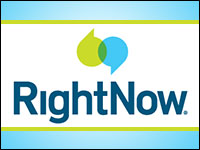
Many small businesses fail to fully utilize automated time-reporting tools or shy away from them altogether.
However, once a business starts to reach about 30 staff members, time reporting helps them understand costs, improve efficiency, and focus on the right areas, Journyx CEO Curt Finch told CRM Buyer. It helps them track how much is spent on each customer and decide which ones are more profitable.
“People aren’t intuitive about numbers sometimes,” Finch said.
Time tracking can help show companies where they are making money and allow them to eliminate poor customers.
Implementing an automated time-tracking system resolves issues with compliance, accuracy and efficiency, noted Lisa Disselkamp, principal consultant at Athena Enterprises and author of Working the Clock and the newly released No Boundaries.
Time tracking helps with cost control and revenue growth, she told CRM Buyer, and it can be used as a decision-making tool.
An automated system provides better validity and accuracy, Disselkamp continued. It helps eliminate unreported time, errors, duplication of effort and payroll leakage. The better controls inherent in such a system make it more difficult for people to break it.
Time tracking helps a business understand how labor money is being spent and allows the owner to focus more on the business and less on administrative tasks. Plus, these systems can help improve attendance and reduce absenteeism.
Tracking Solo
Time-tracking applications help business owners analyze data and make well-informed decisions about projects and clients, noted Cosmina Stefanache, product marketing manager at Fanurio.
Even sole proprietors, such as freelancers, can benefit from automated time tracking, Stefanache told CRM Buyer. It helps them keep accurate, well-organized records of their work sessions This allows them to easily access and review their work. They can use this information to make better estimates when contracting new jobs. In addition, they will not have to spend as much time on billing since the work is logged in the system, freeing them to spend more time on billable work.
“The main reason someone invests in a time tracking system is to have accurate time recordings which can’t be obtained if it isn’t easy to record time,” Stefanache said. “A good time-tracking system helps you record time as you work because you can easily get absorbed by a task and forget to enter time.”
Resistance to Time Reporting
In spite of the benefits, small businesses sometimes find it difficult to implement time-tracking solutions. The cost of implementing a system can be discouraging.
“The biggest stumbling block is that it’s a major investment,” Disselkamp stated. When a business is small, it is easy to track time. It does not justify the investment. However, as the company grows, or if a small company is complex, it can justify the investment. For example, a small company with union workers can reap benefits by using time-tracking tools.
Even freelancers may find a time-tracking application a worthwhile investment as their client base grows.
“When the business grows beyond one or two clients, a time-tracking software application can help freelancers do a better job at managing their work than anything else,” Stefanache maintained.
Another thorny issue is resistance from employees when a company attempts to introduce a time-tracking solution.
“Change is always hard,” Walter Ross, CEO of Legiant, a time-and-attendance software company, told CRM Buyer. “Human nature doesn’t change.”
Employees may worry about their status within the company. Some employees may be insulted if they are suddenly required to record their time. Companies should take proactive steps to help employees understand the business need to bill time, Ross advised.
“Most organization aren’t trying to act like big brother,” he said.
There may be psychological factors underlying resistance to reporting time, observed Journyx’s Finch.
“Everybody hates timesheets,” he admitted. Employees do not understand why they need to track time, and it’s up to organizations to explain its importance to their staff.
Sometimes unions resist the implementation of automated systems, said Disselkamp.
However, time tracking enforces consistency and fairness, and it helps enforce union contracts, she pointed out.
“We all want to be treated fairly and consistently,” she said. Time and attendance tracking helps build that kind of culture into an organization.
Impact of the Recession
For vendors of time-tracking systems, “it hasn’t been a boom year,” Finch admitted. The sector has been in slowdown mode since April 2008.
However, some companies are reassessing their existing time-tracking systems because of the economy, commented Legiant’s Ross. They are looking for cheaper alternatives.
Choosing a Time-Tracking System
When a company decides to invest in time tracking, Finch recommends looking for a system that provides good support. Companies should also thoroughly check references and make sure the product has disaster recovery and security backup capabilities.
It’s a good idea to check for SAS 70 certification, suggested Finch.
Systems should be evaluated in terms of training costs, ease of use, and growth potential, Disselkamp advised. Consider whether it will be scalable and grow with the company.
Customers should evaluate a product’s reporting capability, suggested Fanurio’s Stefanache, and make sure that it can be used easily with other software, such as an accounting system or spreadsheet program. It should import and export data easily.
“It’s also safer when you invest in a system that works on multiple platforms,” Stefanache advised.
Look for an integrated product that can handle various time-tracking components such as payroll, billing and project management, recommended Finch. This helps eliminate inconsistency.
Going Mobile
Evolving technology will impact the way people report their time. People will continue to utilize smartphones, Finch predicted. Web-based cellphone technology will become important.
“We have iPhone capabilities,” Finch said. “People are going to do a lot more with handheld devices.”
The phone and the Web will replace an expensive time clock, said Disselkamp. In the future, GPS validation will be used for recording and billing.
“That’s where people want to go,” she said. “This is going to grow.”
A cellphone will allow an employer to validate a person’s location, she noted, and this can provide cost savings when an employee has to work offsite. For example, it can be used in healthcare for nurses who visit patient homes.
Leasing software and accessing it over the Web will become more common as an inexpensive alternative, Disselkamp added. “It’s really reducing the cost.”























































HourDoc is tool for Time Tracking. http://www.HourDoc.com is right treatment for time and labor management processes has to be an easy-to-administer and affordable solution for Freelancers, supervisors, employees and HR and payroll managers. They offer free application to companies less than 50 employees.
We at Paymo Time Tracking & Invoicing (http://www.paymo.biz) offer our system for free to small businesses and the feedback thus far has been great.
Using a time tracking system in a business that bills by the hour is a must especially during these challenging times.